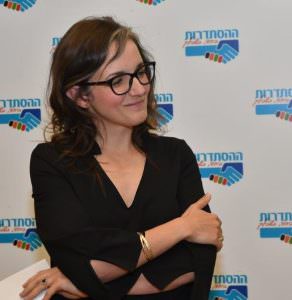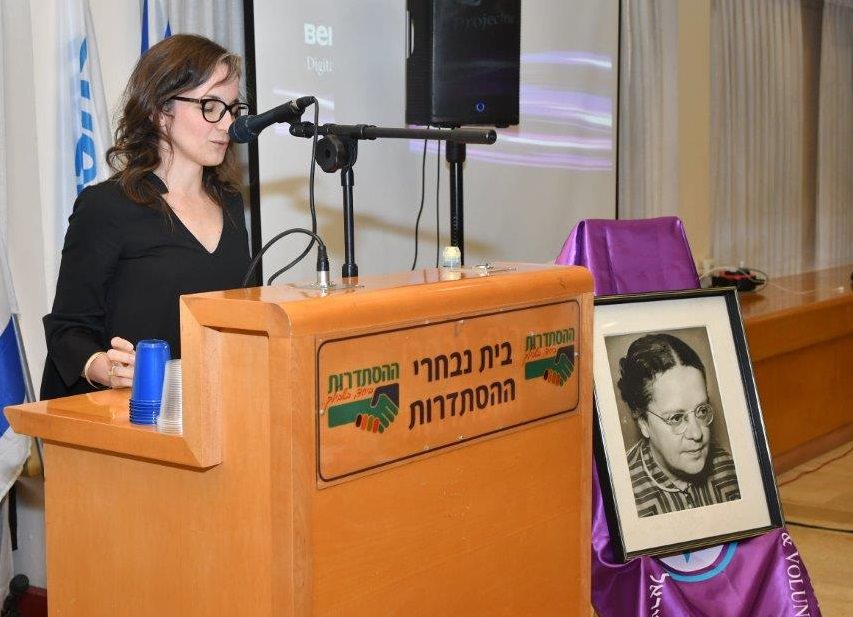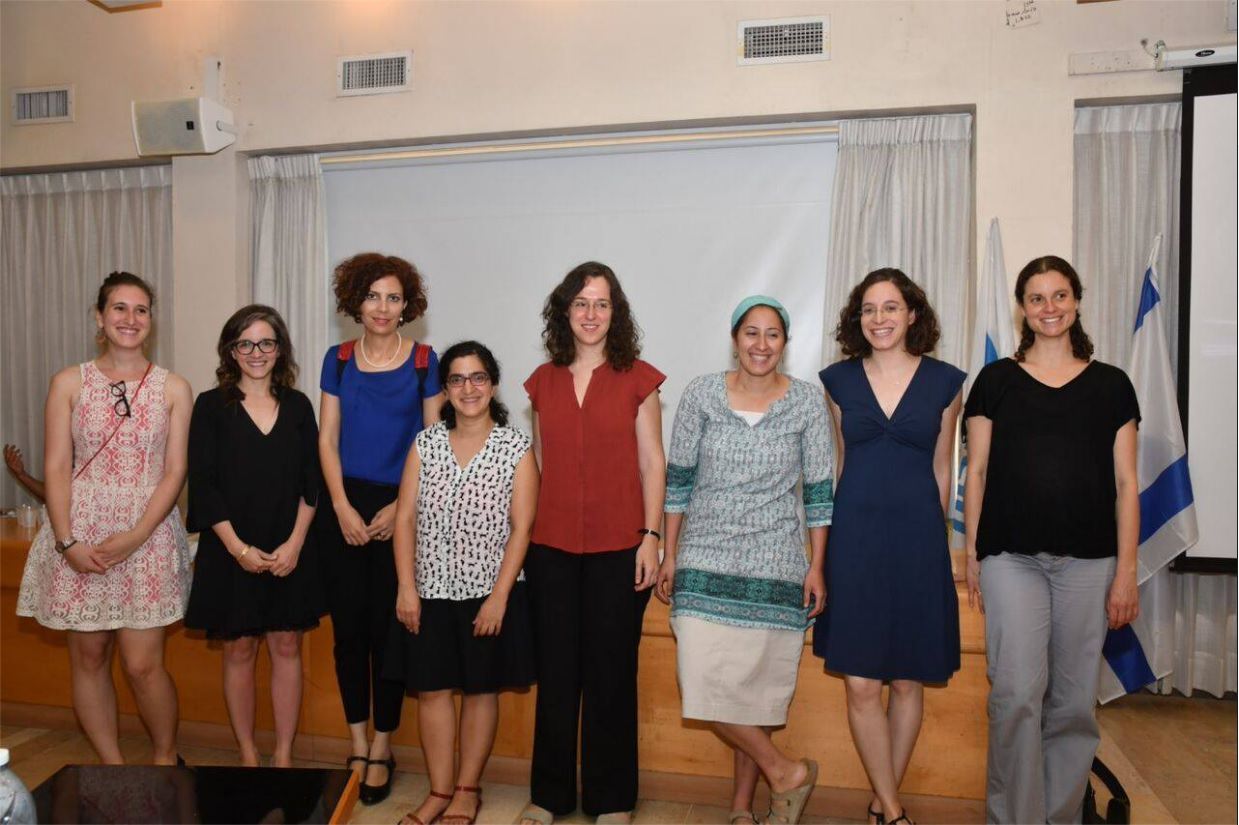A Question of Balance
Maor Kalfon Hakhmigari is using a grant from NA’AMAT to study work/family balance.

Maor Kalfon Hakhmigari is the recipient of a 2016 grant from the NA’AMAT Scholarship Program, funded by NA’AMAT USA. Maor is a 32-year-old vocational psychologist living in Ramat Gan and a Ph.D. candidate at Bar-Ilan University. The grant will help fund her research into work/life balance among young adults, an area of keen interest not only to young people in Israel, but around the world. Maor is also married and the mother of a 2 1/2 –year-old daughter. Work/life balance is not only an issue she studies, it’s one she experiences in everyday life.
Maor recently spoke with NA’AMAT USA about her life, her research and her hopes for the future.
NA’AMAT USA: Tell us about your background and education.
Maor Kalfon Hakhmigari: I grew up in Be’er Sheva, in the south of Israel, and I earned my bachelor’s degree from Ben Gurion University in the Negev. I studied behavioral science. I earned my master’s degree in vocational psychology at the Academic College of Tel Aviv-Yaffo. That’s what I do today.
NU: What’s involved in your work as a vocational psychologist?
MKH: I counsel people and assist them in choosing the right career path according to their personal needs, character and life story. I help them understand what is, for them, the most suitable profession. I also work in the field of diagnostics. Companies that are considering hiring people send them to me for diagnosis.
NU: What types of issues do your clients have?
MKH: Many young people who come to me want to find a career where they can earn a lot of money, but that doesn’t always match their skills or personalities. Many young people are dealing with the expectations of their parents, which are not always the same as what they wish for. It’s complicated.
NU: So you help people choose career paths that they will find satisfying?
MKH: Yes, of course. I am a psychologist. I don’t help people find jobs; I help them understand, on a psychological level, what they need to do.

NU: Do young people in Israel have special concerns about their careers?
MKH: I don’t know if their concerns are different from Americans, but in Israel, we have military service, so young people usually don’t decide what they want to study until they are 21 or 22 years old. Many of them are concerned about finding something that will allow them to live well in Israel.
NU: How did you become interested in this field?
MKH: When I was pursuing my B.A., I wanted to be a therapist. But, when I was exposed to vocational psychology, I found it very interesting. It was suitable for me because it gave me the opportunity to work with people and to affect their lives and their thinking. It’s very practical. I help people plan their careers better. I find it very satisfying when people know what they want to do with their lives and careers.
NU: How far along are you in your Ph.D. program?
MKH: I’ve been working toward my Ph.D. for two years, and I have two years left. Because I am working while doing my Ph.D., it takes time.
NU: Can you tell us about your research?
MKH: My research deals with the balance between work and family. I am investigating two issues. One is intergenerational transmission, how the way parents balance career and family affects the way their children achieve balance. I am also investigating the impact of the romantic partner on balancing work and family.
NU: As a young mother yourself, you are not only studying these issues, you are putting them into practice.
MKH: Yes, definitely.
NU: How is that working out?
MKH: It’s complicated. (laughs) It’s one reason that I find my research so important. Many young women are trying to balance family and career. It is important for me to have a career, and I want to be successful in what I do. On the other hand, I have a 2 1/2-year-old girl who needs me and I have a husband. I love my family. I want to be with them and invest myself in that part of my life. I need to balance the two. It’s always a bit of a dance.

NU: What do you plan to do once you complete your Ph.D.?
MKH: I hope to combine academic work with the counseling I currently do. If I can have both, I will be very satisfied.
NU: What did it mean to you to receive a grant from NA’AMAT?
MKH: It was very important. I am pleased and thankful for the grant. On the day I received the phone call about the grant, I had just declined a job offer in the field of diagnostics. So the call was like a sign that I should continue my research. It was very encouraging to learn that others thought my research was important and meaningful. That made me very happy.
NU: What advice would you offer to a young girl who is thinking of a career like yours?
MKH: Don’t give up! It is a very long process to become a psychologist in Israel. It takes a lot of time and hard work. But if it’s something you want to do, you should do it. Follow your dream!
